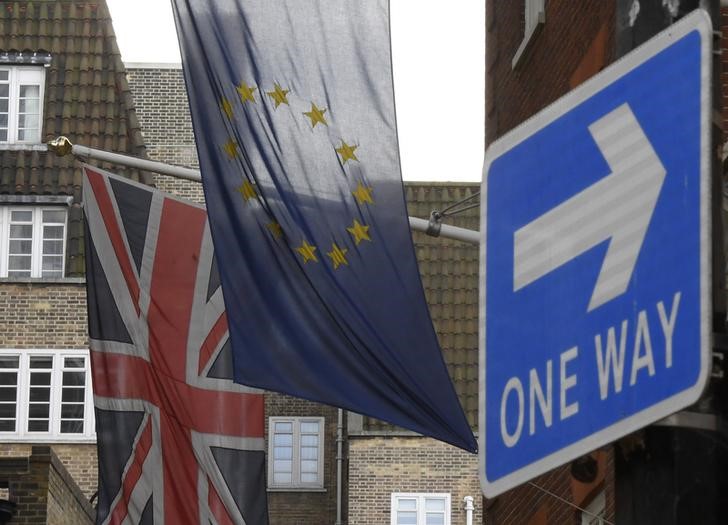(Bloomberg) -- The Brexit transition period will need to be extended potentially for years because any new customs regime will not be ready to come into force in time, according to senior British officials.
In what would be a politically explosive decision, the U.K. will have to stay inside the European customs union beyond the transition period’s end date of December 2020 while new border measures are developed, said two people familiar with the Brexit talks.
Prime Minister Theresa May is already under intense pressure over the future of Britain’s customs arrangements from rival factions within her divided Conservative Party, following a Cabinet split on Wednesday. Passionate Brexit campaigners such as Foreign Secretary Boris Johnson fear May will tie the U.K. too closely to the EU’s trade regime.
On the other side, Tories who want to keep the U.K. inside the customs union are plotting to join the opposition Labour Party to defeat May in a crucial vote on the issue that could come later this month. If she agrees to either side’s demands, May faces a backlash that could see her ousted from power.
“Although May will try to somehow find a compromise that would keep the pro- and anti-EU factions of her party on board, that will be extremely difficult,” said Mujtaba Rahman, managing director at Eurasia Group. “Once again, her authority is on the wane.”
Read more - Stuck In the Middle: These Are Theresa May’s Four Brexit Options
According to two people familiar with the matter, May and her divided Cabinet now have two key decisions to make: first, what kind of customs deal they want with the European Union, and then what temporary measures will apply until the new system is operational.
The most obvious answer to the second question is to extend the U.K.’s transitional membership of the customs union beyond its current end date of the end of December 2020, the people said, speaking on condition of anonymity because the matter is sensitive.
The option of extending the U.K.’s membership of the customs union is not official government policy and hasn’t been formally proposed in negotiations with the EU in Brussels. But the idea is in circulation in May’s team and it’s something she will need to address.
Another person familiar with the negotiations said the EU would be ready to accept such an idea, which could involve a four- or five-year extension to customs union membership.
The U.K. government is at a critical crossroads as it seeks to decide the question of Britain’s future customs arrangements with the EU after Brexit. On Wednesday, May’s Brexit “war cabinet” of senior ministers failed to agree on what kind of customs deal to seek with the EU at a tense meeting in London.
The prime minister’s own preferred option for a tight customs “partnership” with the bloc was rejected by more than half of the ministers in the group, in a blow to her authority and a set back for the Brexit negotiations.
